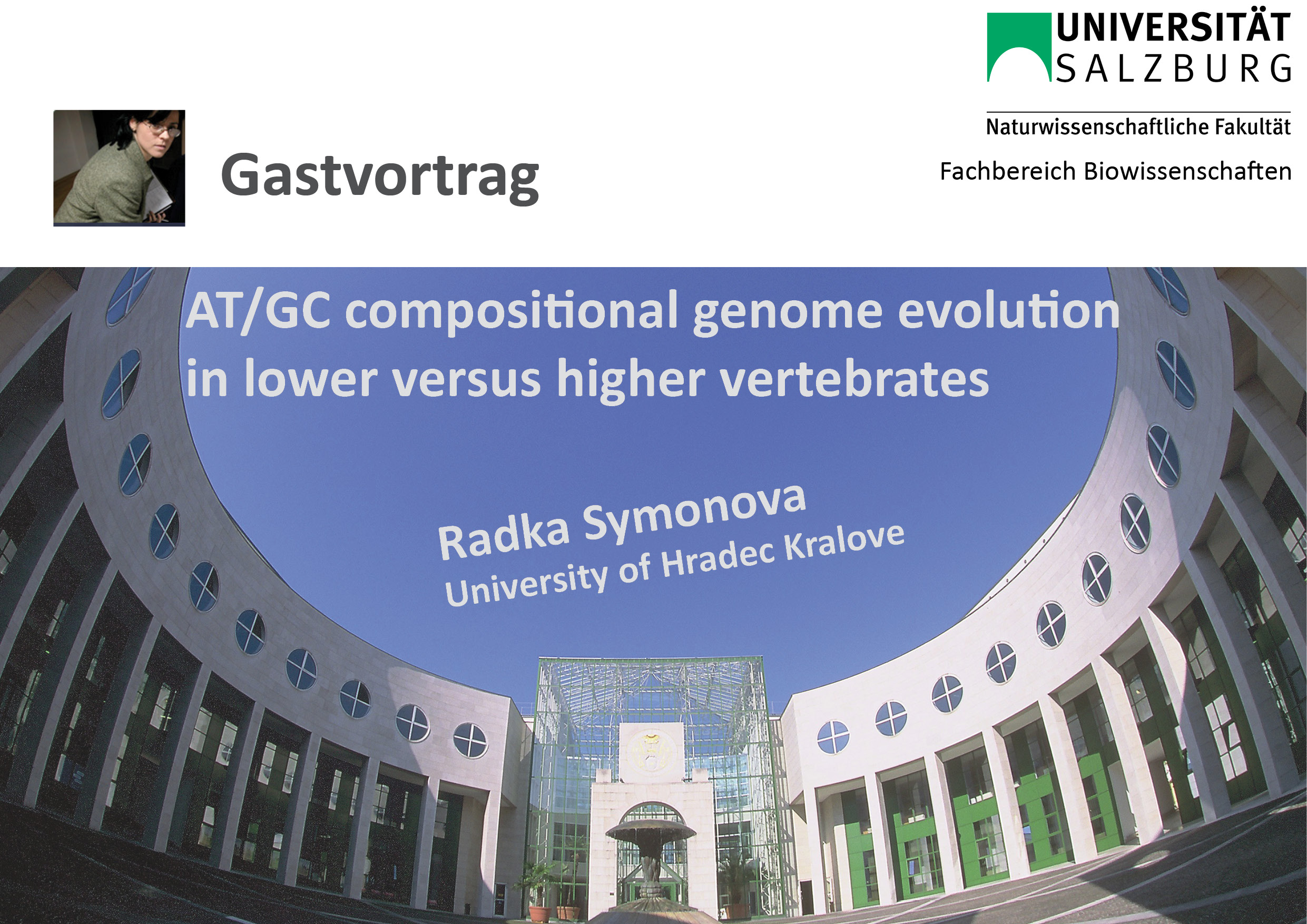20 April – Lecture: AT/GC Compositional Genome Evolution in Lower Versus Higher Vertebrates

Radka SYMONOVA ist Leiterin der Eco-Evo Cytogenomics Group, Faculty of Science, University of Hradec Kralove.
Abstract:
Mammalian and avian genomes are extremely complex with finely coordinated functions. Surprisingly, myteam disclosed the mammalian way of genome base (A, T, G, C) organization in an archaic fish lineage gars. Garspossess GC- and AT-rich regions altering on their chromosomes and in DNA sequence as mammals do. Other fishes,amphibians and most reptiles have a homogenous AT/GC genomic distribution. This sheds new light on vertebrategenome evolution. Hitherto, the AT/GC heterogeneity was considered an adaptation to increased body temperature ofamniotes stabilizing gene-rich (GC-rich) regions. However, gars are anamniotes and their body temperature dependson the environment as in other fishes and amphibians. Interestingly, bowfin, the closest relative of gars, possess thetypical AT/GC homogenous organisation. Genomic base organization is driven by numerous factors: recombinationrate, mutations, DNA methylation, environmental conditions, karyotype, metabolic rate, life history, physicalchemicalproperties of DNA determining DNA bendability, nucleosome formation potential, chromatin structure andtranscription activity. The exact interplay of these factors remains unclear and in anamniotes only a limited number ofspecies was tested for a few of these factors. The proposed and so far tested hypotheses did not involve gars and theirGC heterogeneity. One possible explanation might be convergent evolution between gars and mammals. Based on therobust fossil evidence, gars and early tetrapods could have faced similar selective pressures and converged on similarsolutions. However, there are several other levels of this extremely complex issue that have to be taken into account tostart understanding the origin of the AT/GC heterogeneity in the almost extinct lineage of gars and in vertebratesgenerally.





